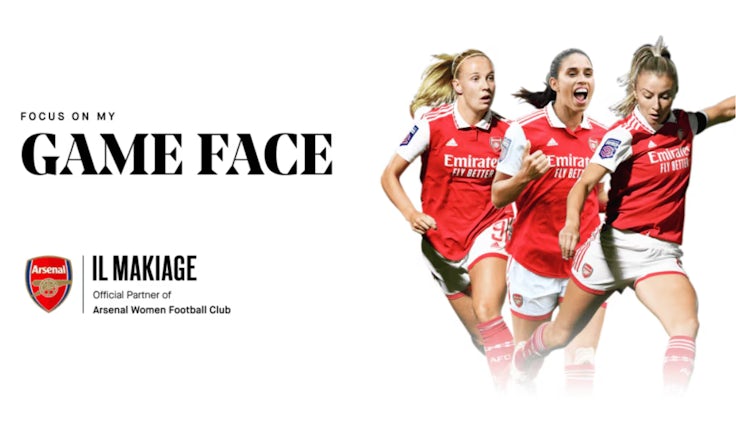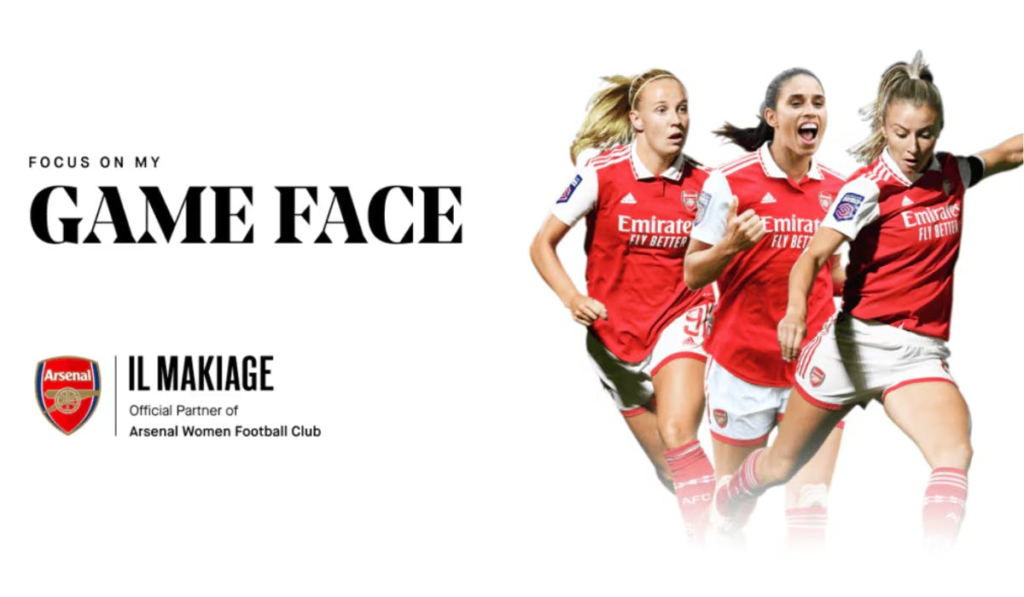
Consumers are more likely to buy from a brand that sponsors women’s sport than men’s, according to the Women’s Sport Trust’s latest consumer report.
Some 9.96 million consumers say they are more likely to purchase from women’s sport sponsors, compared with 8.38 million for men’s sport. This figure is up 2% since 2023.
Moreover, 30% of consumers think more positively of brands that support women’s sport through sponsorship, compared with 20% for men’s sport. The research surveyed a nationally representative sample of 2,080 UK adults and tracked 40 different partnerships.

Consumers are more likely to buy from a brand that sponsors women’s sport than men’s, according to the Women’s Sport Trust’s latest consumer report.
Some 9.96 million consumers say they are more likely to purchase from women’s sport sponsors, compared with 8.38 million for men’s sport. This figure is up 2% since 2023.
Moreover, 30% of consumers think more positively of brands that support women’s sport through sponsorship, compared with 20% for men’s sport. The research surveyed a nationally representative sample of 2,080 UK adults and tracked 40 different partnerships.
Among 18-34-year-olds, awareness of women’s sport sponsorship is higher than it is among the total UK adult population, reaching 63% for football partnerships compared to 46% for the overall population.
Women’s sport shows ‘unprecedented’ digital growth despite broadcast dip
“Women’s sport sponsorship works – but it works differently,” says Tammy Parlour, CEO of Women’s Sport Trust. “It demands a different lens, different activations, and a sharper focus on relevance, values and storytelling.
“The brands seeing results are those showing up consistently and meaningfully. The message is clear: brands that act now can help shape the future of women’s sport and win consumer trust in the process.”
Affinity over awareness
Awareness is not the key metric for brands engaging in partnerships with women’s sport organisations and athletes, the report suggests.
While sponsorships may typically reach smaller audiences, they are delivering strong impact among those who are aware of the relationship.
Of the 40 women’s sport partnerships analysed, Rexona’s tie-up with England and Chelsea defender Lucy Bronze was the top rated for brand affinity.
Just 10% of the 2,080 surveyed were aware of the partnership. However, 76% of those have strong positive feelings towards the brand suggesting brand affinity and 42% considered buying from Rexona off the back of it.
Other high-performing brand partnerships include makeup brand Il Makiage’s tie-up with Arsenal Women, Joie’s sponsorship of Manchester City Women, Kellogg’s sponsorship of the EFL’s girls football camps and Clinique’s Women’s Rugby partnership, which all rank above 70% for brand affinity.
‘We still have to be bold’: Inside Manchester City Women’s partnerships strategy
Positive sentiment towards brands investing in women’s sports is increasing. Three-fifths (59%) of consumers familiar with Adidas’s women’s sport partnerships feel more positively towards the brand, compared with just half (50%) in 2023.
Il Makiage has seen a 19% increase in its brand affinity and a 15% uplift in consideration since 2023. The make up brand’s consideration sits at 46% – the highest of the 40 brands analysed in the report.
“[The partnership] was brought to life through iconic city-wide activations, including a fleet of red London buses wrapped in our ‘Focus on My Game Face’ campaign and exclusive Arsenal x Il Makiage tote bags delivered to over 100,000 fans at sold-out Emirates matches,” says Oded Bahar, Il Makiage vice-president of international.
“We didn’t just show up – we helped shape the cultural conversation at the intersection of sports and beauty. We’ve seen how investing in women’s sport drives brand affinity, cultural relevance and real commercial impact.”
Brands are also noting the impact of sponsoring individual female athletes.
Four in five brand decision makers say they are likely to invest in women’s sport sponsorship in the next three years, according to research from the Women’s Sport Trust published in February.
More than half (55%) of those are targeting women’s football, and 73% of brands surveyed, say they are likely or somewhat likely to invest in individual female athletes.
A quarter (24%) of consumers want to see more brands sponsor individual female athletes, compared to 16% who want them to engage more with male athletes.
The majority (70%) say providing role models in sport for young girls and women is an important area for brands to focus on when sponsoring women’s sport.
In terms of athletes commanding consideration from fans, 41% of women are more likely to consider buying from bakery brand Warburtons due to its partnership with former England goalkeeper Mary Earps, while 42% feel similarly about Cadbury’s partnership with England captain Leah Williamson.


